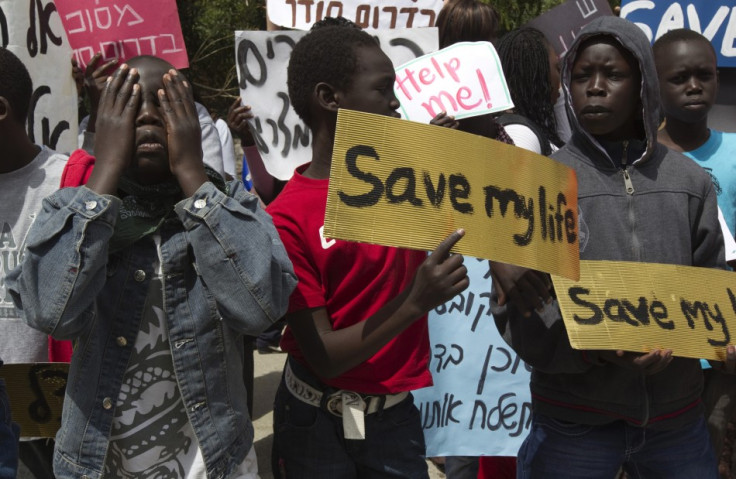Israel: Tel Aviv Petrol Bombs Attack on African Migrants as Tensions Intensify
An Israeli man was charged with arson after he threw Molotov cocktails at the homes of African migrants in Tel Aviv.

Israeli media reported an Israeli man was charged with arson after he threw seven Molotov cocktails at the homes of African migrants, as anti-immigrants feeling grows in Israel.
The man, named as Haim Mula, threw the petrol bombs at several apartments in Tel Aviv's Shapira neighbourhood in April, reports say.
No one was injured in the attack although it caused heavy damages. The incident however illustrated growing tensions between immigrants and locals who feel their neighbourhoods are being overwhelmed.
The rising numbers of African nationals arriving from war torn or poor countries has sparked to a debate about whether most of them are asylum seekers fleeing persecution or just economic migrants.
Most new arrivals come from Sudan and Eritrea and immigrants from those countries make-up the largest African group in Israel. Both groups share the same legal status. While they have temporary visas issued every three months, Israel still has to clarify their official rights.
They usually go to Egypt where they sneak across the border from the Egyptian Sinai, often paying Bedouin smugglers.
Reports of abuse and theft by the smugglers are recurrent. Most of the immigrants also gather money to pay the smugglers by borrowing from friends or family, money they are expected to start repaying as soon as they arrive in Israel.
African refugees began migrating in high numbers to Israel in the mid-2000s, but a steady increase had been reported since 2007.
By 2010 figures suggest up about 33 000 African immigrants had crossed the border into Israel hopping to regularise their status; by 2011 the number had grown to more than 50 000.
They often end up in Tel Aviv's poorer distircts and with only temporary many cannot work, making it extremely difficult for them to support themselves.
Some Israelis however questions the immigrants' status saying most are economic migrants than refugees who risks persecution in their country, a claim supported by the Israeli government. Others also blame migrants for the rise in crimes.
Tensions in Tel Aviv are set to be further heightened after police confirmed on 18 May that three Eritrean nationals had been arrested in connection with the rape of a 15 year-old Israeli girl.
© Copyright IBTimes 2025. All rights reserved.




















